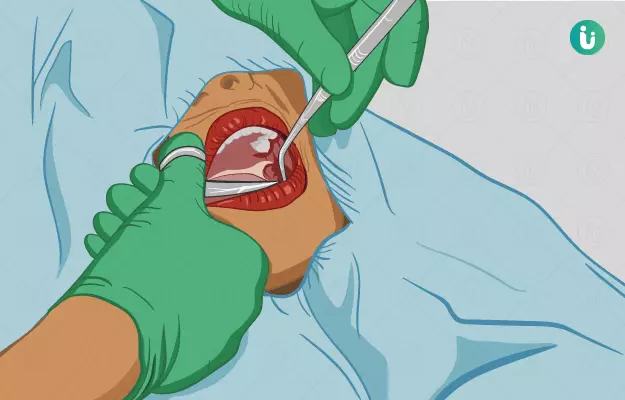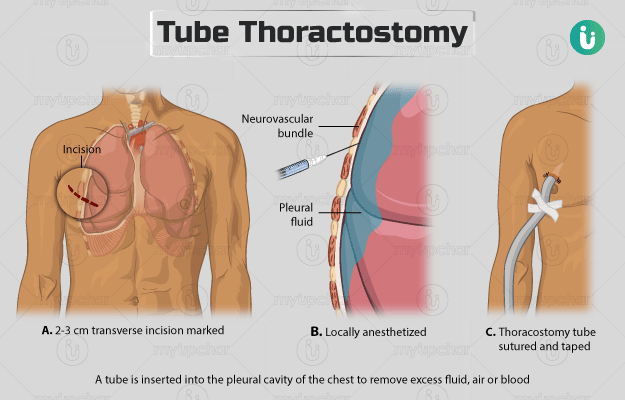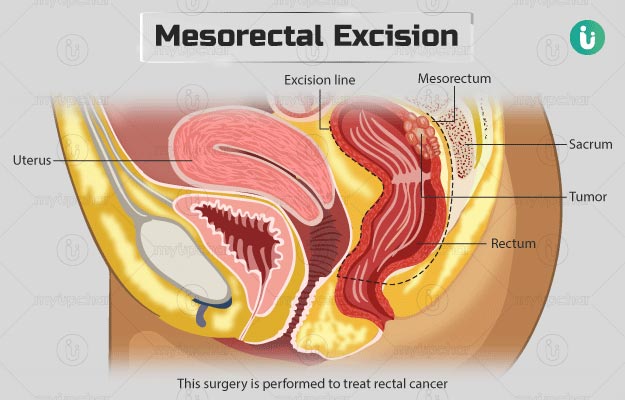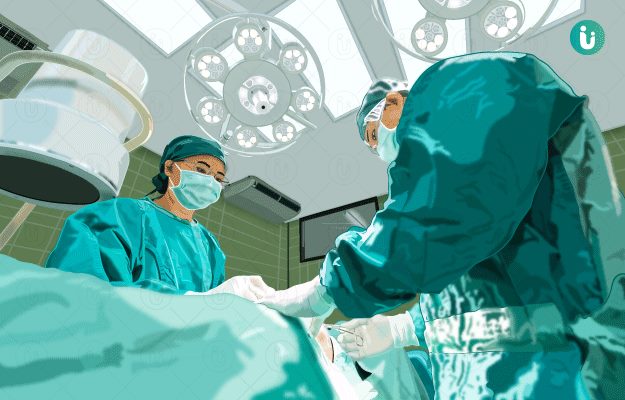After admission to the hospital, you will be given general anaesthesia (so that you fall asleep during the procedure) under the guidance of an anaesthetist. Before the surgery begins, the anaesthetist will explain how anaesthesia will affect you.
During the surgery, the entire tumour and some margin of healthy tissue will be cut out (resected) to make sure that no cancerous cells are left behind. Depending on the location and the size of the tumour, the following methods will be used to remove it.
- A tumour in the front of the mouth can be removed through the mouth. If the tumour has spread into the oropharynx (the part of the throat just behind the mouth, the incision will be made in the neck or the jawbone to reach the tumour.
- In case of cancer of the floor of mouth/lower jaw bone – The surgeon may need to remove a part of your jaw bone. The jaw bone may be rebuilt later with bone from another part of your body or a donor. A metal plate may also be inserted.
- In case of cancer of the roof of the mouth/upper jaw bone – The surgeon may remove a part of the bone and the individual may be fitted with facial as well as dental prosthesis (a special device that fits into the roof of the oral cavity to cover the hole from surgery).
- In case of cancer of lips – It is vital to preserve the appearance and function of the lips. So the doctor will remove one layer of skin at a time, until no more cancerous cells are seen. All the layers are examined under a microscope right away to look for cancerous cells.
- In case of cancer of tongue – A full or partial removal of the tongue may be needed.
- If the muscles that are required to swallow are removed in cases of cancer of the tongue or oropharynx, food may enter the windpipe and, subsequently, the lungs, and lead to pneumonia. To prevent this from happening, the voice box (larynx) is also removed during surgery (laryngectomy). In this case, a hole in the front of the neck is made, which is joined to the windpipe for breathing and coughing. This procedure is called a tracheostomy. Individuals who have had their voice box removed will have to learn other ways to communicate.
- Lymph nodes – If lymph nodes in the neck are affected by the cancer, they will be removed as well, thus rendering the individual free of any cancerous cells.
If the individual experiences difficulty in breathing, a tracheostomy may need to be done. This can be a temporary or permanent procedure depending on the individual 's condition.
If cancer is in the advanced stage, a larger portion of the mouth may need to be removed, making it difficult for the individual to eat. In such cases, a tube is passed into the stomach through the nose or directly through the belly (abdominal wall - gastrostomy) to provide nutrition.
If a larger area of tissue is removed, it may affect how you look or make it difficult for you to use the mouth, hence rebuilding of this area is essential. Reconstructive surgery is done by taking healthy tissue from another part of body, skin, muscle or bone.
The time taken for surgery is variable depending upon the extent of cancer.
Additional supportive radiation or chemotherapy is done to restrict the spread of cancer (metastasis) or if there is confirmed metastasis, depending on stage of oral cancer. You may require a hospital stay for a few days depending on what part and how much of the oral cavity is removed.









































